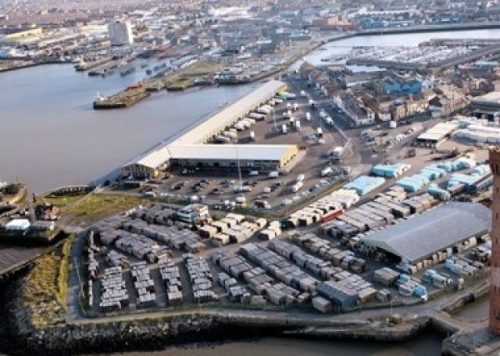The UK saw stable port freight tonnages overall in 2018, the Department for Transport’s (DfT) Annual UK Port Freight Statistics show.
Data for 2018 shows stable port freight tonnages overall, with only a 0.1% difference on the previous year at 483.3m tonnes, said the British Ports Association (BPA). The figures detail 95% of UK physical imports and exports, which are facilitated by ships using British ports.
Phoebe Warneford-Thomson, policy and economic analyst at the British Ports Association, said: “Despite a temperamental global trading climate and the uncertainties created by Brexit, 2018 was a steady year for port operators.
“Overall port freight figures remain constant although there is plenty of port capacity in the dry bulks, project cargo and particularly in the container sectors, meaning shipping companies have plenty of choice. This means competition between ports, which drives efficiencies and innovation.”
The BPA noted that statistics for the fourth quarter of port freight tonnage showed an exceptionally high growth of 6% to 121.8m tonnes, which it said is consistent with suggestions that UK manufacturers were ‘stockpiling’ inventory ahead of expected Brexit-related trade disruptions in quarter one and two of 2019.
The data for UK major ports (ports handling over a million tonnes annually) in 2018 show that the UK continues to import more than it exports. A total of 252.4m tonnes were imported, compared to 130.5m tonnes exported. More goods were moved between UK major ports and the EU than any other region in 2018, accounting for 44% (206.2m tonnes) of total major port traffic. Container units increased to a record high of 6.0m units.
Volume growth for the collection of Humber ports including Grimsby, Immingham and Killingholme contributed to an overall increase of market share to 17%, maintaining its position as the busiest regional trade gateway in the UK.
The Port of London ‘complexes’ increased its market share to 11.3% from 9.4% in 2015, maintaining its position as second in the UK market.
Issues at the Port of Felixstowe, the UK’s busiest container port, throughout 2018 resulted in a 1.2m tonnes (-15.6%) decline of tonnage in the fourth quarter, and inward units handled declined by -18.2% across the full year. Most of this traffic was switched by the deep-sea shipping lines to other UK ports such as Liverpool and London Gateway.
Source: Port Strategy

